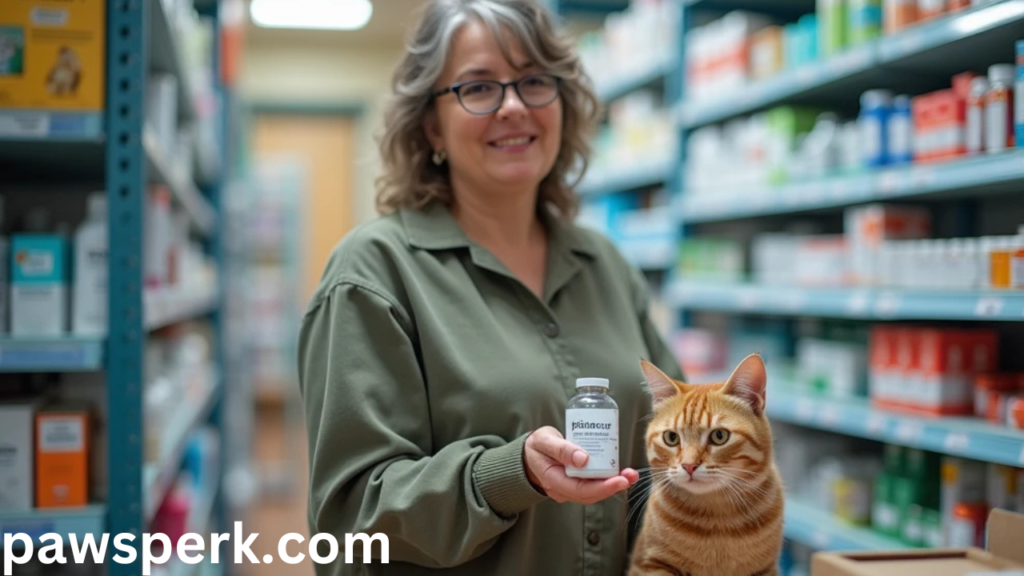Panacur is a popular medication for deworming cats that works well against a range of intestinal parasites. What Panacur is, how it functions, its advantages, and crucial factors for cat owners will all be covered in this blog post.
What is Panacur?
When it comes to keeping your feline friend healthy, deworming is a crucial part of their care routine. Panacur, a widely used and trusted deworming medication, is highly effective in combating a broad spectrum of intestinal parasites, including roundworms, hookworms, whipworms, and certain tapeworms. In this comprehensive guide, we’ll dive into everything cat owners need to know about Panacur—what it is, how it works to eliminate parasites, the benefits it offers for your cat’s overall health, and key considerations for its safe and proper use. Whether you’re a new pet parent or an experienced cat owner, understanding how Panacur can support your cat’s well-being is essential.
How Does Panacur Work?
The main ingredient of Panacur, fenbendazole, interferes with parasite metabolism. Their inability to absorb glucose as a result causes them to eventually perish. This technique enables it to combat worms in both their adult and juvenile stages. Usually used orally, the drug can be given to the cat alone or combined with food.
Types of Worms Treated
Panacur works well against a number of worm species that frequently afflict cats:
One of the most common intestinal parasites in cats are roundworms. If ignored, they could result in serious health problems.
- Tapeworms: Usually acquired by contaminated food or fleas, tapeworms can cause digestive issues and weight loss.
- Lungworms: Although less frequent, panacur can also be used to treat lungworm infections.
Benefits of Using Panacur
- Broad-Spectrum Efficacy Panacur’s broad-spectrum effectiveness is one of its main benefits. It is a flexible option for cat owners worried about a variety of ailments because it cures a variety of worms and parasites.
- Safety Profile Panacur is generally safe for use in cats, including pregnant females and young kittens over two weeks old. This safety profile makes it a preferred option for many veterinarians.
- Easy Administration The different formulations available—liquid, granules, or paste—allow for easy administration. For cats that are picky eaters or resistant to medication, mixing the granules with food can be particularly effective.
Minimal Side Effects
Most cats tolerate Panacur well, with minimal side effects reported. Some may experience mild gastrointestinal upset, but serious adverse reactions are rare.
You may also like: Cat Birthday Cake: Easy Homemade Recipe

Dosage Guidelines
The dosage of Panacur depends on the cat’s weight and the specific formulation used:
- Granules: Typically given at a rate of 50 mg per kg of body weight daily for three consecutive days.
- Liquid or paste: administered based on body weight as outlined on the product label.
It’s essential to follow your veterinarian’s recommendations regarding dosage to ensure effective treatment.
Important Considerations
- Veterinary Consultation
Before starting any deworming treatment, including Panacur, it’s essential to seek the advice of a qualified veterinarian. A veterinarian can accurately diagnose if your cat has intestinal worms through a thorough examination and appropriate testing. They will also recommend the right dosage and treatment plan tailored to your cat’s specific needs, ensuring the deworming process is both safe and effective. Consulting a professional helps avoid potential side effects, ensures proper parasite elimination, and supports your cat’s overall health and well-being.
- Monitoring After Treatment
Keep an eye out for any negative reactions or indications of improvement in your cat after giving them Panacur. Get in touch with your veterinarian right away if symptoms intensify or continue.
- Preventative Measures
Prevention is crucial, even if Panacur efficiently heals infections that already exist. The danger of reinfection can be decreased by routine veterinary examinations and proper cleanliness, such as cleaning litter boxes as soon as possible.
Conclusion
When it comes to protecting your beloved feline from harmful parasites, Panacur stands out as an exceptional and safe deworming medication. This widely used drug is effective in treating a range of common and dangerous parasitic infections in cats. With its broad-spectrum action, Panacur targets a variety of parasites, including lungworms, Giardia, roundworms, and tapeworms, making it a versatile tool for feline healthcare.
Using Panacur as part of your cat’s treatment plan ensures that your pet is safeguarded against these harmful organisms, which can otherwise lead to serious health complications. However, it is essential to always consult your veterinarian before administering any medication to your pet. Your vet will provide personalized advice on the appropriate dosage and ensure that the treatment aligns with your cat’s specific health needs.
In addition to treating existing parasite infestations, regular deworming treatments like Panacur can play a crucial role in preventive care. By maintaining a routine deworming schedule, you can significantly reduce the risk of future infections and promote your cat’s overall health.
Remember, the health and wellbeing of your feline companion are directly linked to the care and attention you provide. With the right preventive measures, including deworming with Panacur, you can help ensure that your cat remains healthy, happy, and free from harmful parasites. Regular veterinary checkups and parasite prevention are essential steps in providing the best care for your furry friend!


